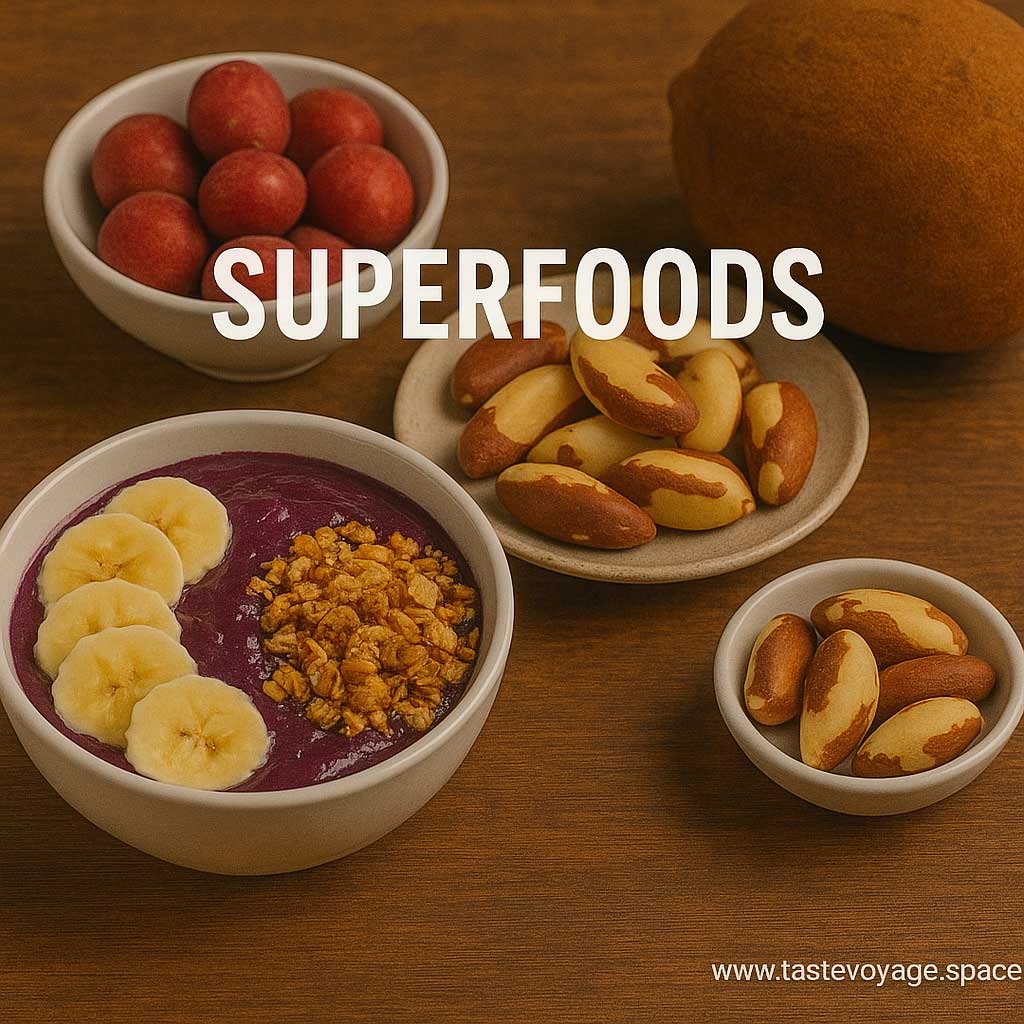Pequi Benefits: Discover Brazil’s Superfruit Powerhouse
Travel the World Through Food >> Brazilian Cuisine>>Superfoods>> Pequi Benefits: Discover Brazil’s Superfruit Powerhouse
Pequi Benefits: Discover Brazil’s Superfruit Powerhouse
Discovering Pequi: Brazil’s Unique Cerrado Treasure
The wild landscapes of Brazil’s Cerrado region are home to many remarkable treasures, and one of the most fascinating is pequi. Known scientifically as Caryocar brasiliense, pequi is a vibrant fruit that embodies the rich cultural and culinary traditions of central Brazil. Its distinct aroma, bold flavor, and cultural significance make it a beloved ingredient in local cuisine. Exploring pequi offers a glimpse into the heart of Brazil’s natural heritage and the ways communities celebrate their regional flavors.
Cultural Significance of Pequi in Brazilian Cuisine
Pequi holds a special place in the cultural fabric of Brazil’s Cerrado communities. Traditionally, it has been a staple for indigenous peoples and rural communities for generations. The fruit is more than just food; it is a symbol of regional identity and a cornerstone in local festivities. Pequi is often used in traditional dishes that bring families and communities together, especially during harvest seasons when the fruit is abundant. This deep-rooted connection highlights pequi’s role as a cultural emblem, representing resilience and harmony with nature.
The Culinary Richness of Pequi
Culinarily, pequi is celebrated for its unique flavor profile. The fruit’s pulp offers a combination of nutty, buttery, and slightly spicy notes that make it versatile in various dishes. Chefs and home cooks alike value pequi for its ability to enhance local recipes, lending a distinct aroma and taste that is unmistakably Brazilian. It is commonly incorporated into rice dishes, stews, and Sauces, providing a rich and aromatic component that elevates the flavor profile.
One of the most iconic uses of pequi is in pequi rice, a hearty dish that captures the essence of the Cerrado’s culinary tradition. The fruit’s oil is also extracted and used as a cooking ingredient, adding depth and a characteristic flavor to regional fare. Its culinary significance extends beyond mere taste; pequi represents an authentic connection to the land and the people who have cultivated it over the centuries.
The Health Benefits of Pequi
Beyond its flavor and cultural value, pequi offers notable health benefits. It is rich in healthy fats, antioxidants, and vitamins that support overall well-being. The fruit’s oil contains high levels of carotenoids and vitamin A, which are beneficial for eye health and immune function. Its antioxidant properties help combat oxidative stress, making pequi a nutritious addition to a balanced diet.
Preserving and Celebrating Pequi
Today, pequi continues to be celebrated in festivals, markets, and culinary events across Brazil. It symbolizes the vibrant flavors of the Cerrado and the ingenuity of local communities. Conservation efforts and sustainable harvesting practices are vital to ensure that this natural treasure remains accessible for future generations. Chefs and food enthusiasts worldwide are increasingly appreciating pequi’s unique qualities, contributing to a broader recognition of Brazil’s diverse culinary landscape.
Embracing the Spirit of Pequi
In conclusion, pequi is much more than a fruit; it is a cultural icon deeply woven into the identity of Brazil’s Cerrado region. Its culinary significance, health benefits, and role as a cultural symbol make it a fascinating and valuable ingredient. Celebrating pequi allows us to appreciate the richness of Brazil’s natural and cultural heritage, inspiring a deeper respect for regional flavors and traditional foods. Whether enjoyed in traditional dishes or explored as a natural superfruit, pequi invites us to savor the beauty of Brazil’s diverse culinary landscape.
